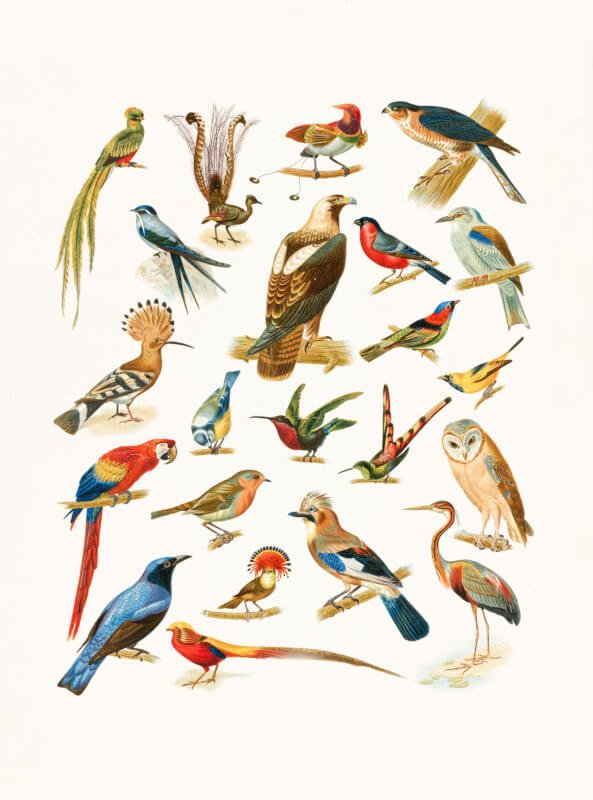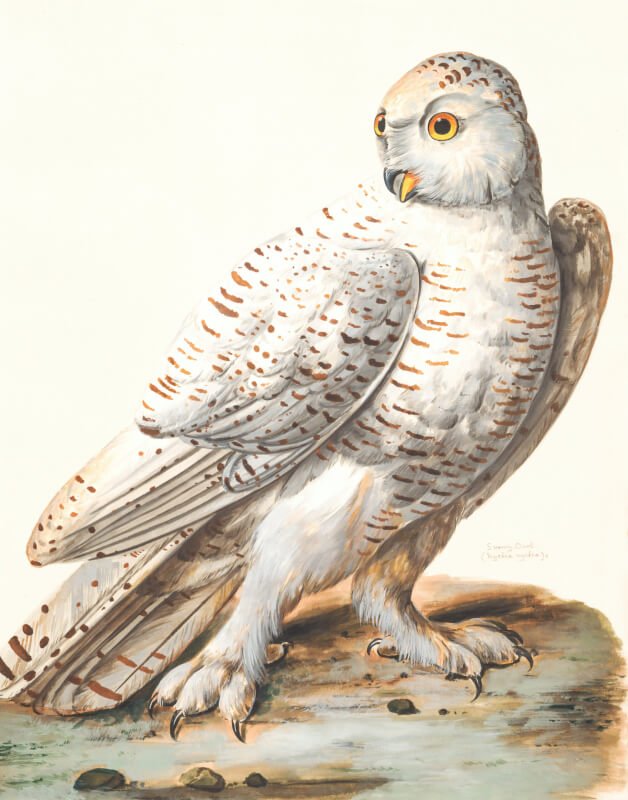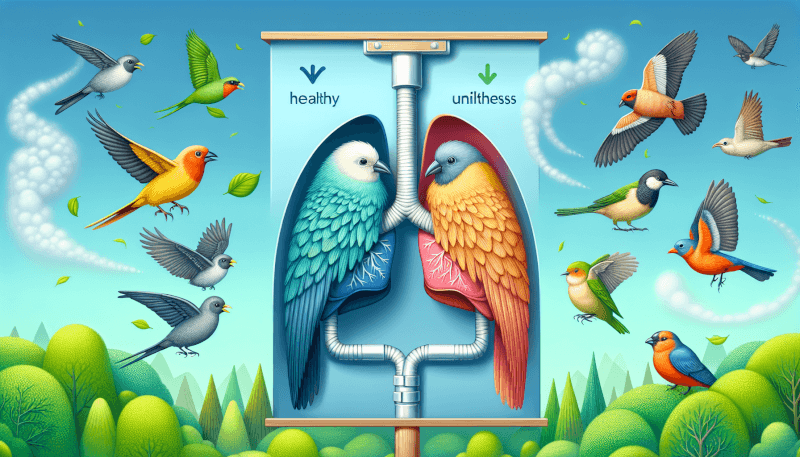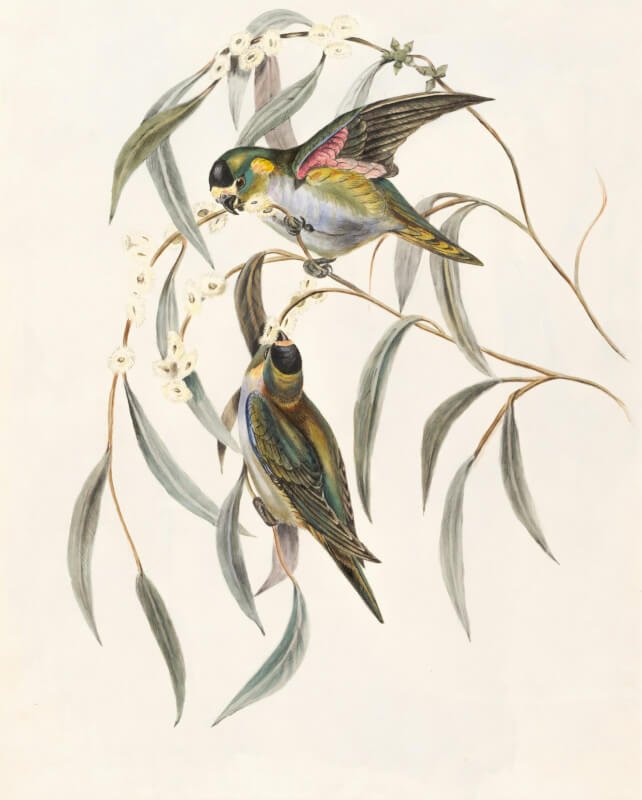In this article, we will explore the topic of common avian respiratory issues and provide helpful tips on how to address them. Breathing problems among birds can be a serious concern, affecting their overall health and well-being. By understanding the signs and causes of these respiratory issues, you can take proactive steps to ensure your feathered friends remain happy and healthy. From recognizing symptoms to implementing appropriate treatment strategies, we will cover everything you need to know to keep your avian companions in top shape. So, let’s dive into the world of avian respiratory health and discover how to effectively tackle these issues head-on.

Common Avian Respiratory Issues
Avian respiratory issues can be a cause for concern among bird owners and enthusiasts. It is important to be aware of these issues and know how to address them in order to ensure the well-being of our feathered friends. This comprehensive article will explore some of the most common respiratory issues that birds can face, including sinusitis, tracheal mites, aspergillosis, bronchitis, pneumonia, air sacculitis, Mycoplasma gallisepticum, infectious laryngotracheitis, avian influenza, and psittacosis.
Sinusitis
Sinusitis is a respiratory condition that can affect birds, causing inflammation and infection in the sinuses. It is typically caused by bacteria, fungi, or viruses, and can lead to discomfort and difficulty breathing for the affected bird.
Causes of Sinusitis
Sinusitis in birds can be caused by a variety of factors. One common cause is exposure to poor environmental conditions, such as dusty or dirty cages. Additionally, viral or bacterial infections can also contribute to the development of sinusitis.
Symptoms of Sinusitis
Birds with sinusitis may exhibit a range of symptoms, including sneezing, nasal discharge, swollen sinuses, decreased appetite, and a general sense of discomfort. In severe cases, birds may also experience difficulty breathing.
Treatment of Sinusitis
If you suspect that your bird may have sinusitis, it is important to seek veterinary attention. A veterinarian will be able to diagnose the condition and prescribe appropriate treatment, which may include antibiotics, antifungal medications, or supportive care to alleviate symptoms. Additionally, providing a clean and dust-free environment for your bird can help prevent recurrence of sinusitis.

Tracheal Mites
Tracheal mites are tiny parasites that can infest the trachea or windpipe of birds, causing respiratory issues. These mites can lead to inflammation, difficulty breathing, and even death if left untreated.
Causes of Tracheal Mites
Tracheal mites are typically spread from bird to bird through close contact. They can also be introduced into a bird’s environment through infested bedding materials or contaminated cages.
Symptoms of Tracheal Mites
Birds with tracheal mites may exhibit symptoms such as wheezing, coughing, labored breathing, and a decreased ability to vocalize. In severe cases, birds may become weak and lethargic.
Treatment of Tracheal Mites
The treatment of tracheal mites typically involves the administration of anti-parasitic medications, often in the form of oral or injectable treatments. It is important to consult with a veterinarian for an accurate diagnosis and appropriate treatment plan. Additionally, implementing good hygiene practices, such as regular cleaning of cages and bedding materials, can help prevent the spread of tracheal mites.
Aspergillosis
Aspergillosis is a respiratory fungal infection that can affect birds. It is caused by the inhalation of fungal spores, typically from the Aspergillus genus. This infection can lead to severe respiratory distress and even death if left untreated.
Causes of Aspergillosis
Aspergillosis is caused by the inhalation of fungal spores, which can be found in various environments. Poor ventilation and high humidity levels can create an ideal environment for the growth and spread of Aspergillus spores.
Symptoms of Aspergillosis
Birds with aspergillosis may exhibit symptoms such as difficulty breathing, wheezing, coughing, loss of appetite, and weight loss. In some cases, birds may develop visible lesions or nodules in their respiratory tract.
Treatment of Aspergillosis
The treatment of aspergillosis typically involves a combination of antifungal medications, supportive care, and environmental management. It is crucial to seek immediate veterinary attention if you suspect that your bird may be suffering from aspergillosis. Creating a clean and well-ventilated environment can help prevent the recurrence of this fungal infection.

Bronchitis
Bronchitis is an inflammation of the bronchial tubes, which are the airways that connect the trachea to the lungs. Birds with bronchitis can experience respiratory distress and may require prompt treatment.
Causes of Bronchitis
Bronchitis in birds can be caused by various factors, including bacterial or viral infections, environmental irritants, and poor ventilation. Stress and crowded living conditions can also contribute to the development of bronchitis.
Symptoms of Bronchitis
Birds with bronchitis may exhibit symptoms such as coughing, wheezing, difficulty breathing, and decreased vocalization. In some cases, birds may also develop nasal discharge and lethargy.
Treatment of Bronchitis
The treatment of bronchitis in birds often involves supportive care, such as providing a clean and well-ventilated environment, as well as administering medications to alleviate symptoms and address any underlying infections. Consultation with a veterinarian is essential for an accurate diagnosis and appropriate treatment plan.
Pneumonia
Pneumonia is a respiratory condition characterized by inflammation of the lungs. It can be caused by bacterial, viral, or fungal infections, and can result in severe respiratory distress in affected birds.
Causes of Pneumonia
Pneumonia in birds can be caused by a variety of factors, including bacterial or viral infections, inhalation of foreign objects or irritants, aspiration of food or liquid, or immunosuppression.
Symptoms of Pneumonia
Symptoms of pneumonia in birds may include difficulty breathing, increased respiratory rate, coughing, nasal discharge, lethargy, and decreased appetite. In severe cases, birds may exhibit open-mouth breathing or gasping for air.
Treatment of Pneumonia
The treatment of pneumonia in birds often involves a combination of antibiotics, antifungal medications, or antiviral drugs, depending on the underlying cause of the infection. Supportive care, such as providing a warm and quiet environment for the bird to rest, is also crucial for recovery. It is essential to consult with a veterinarian for a thorough diagnosis and appropriate treatment plan.

Air Sacculitis
Air sacculitis is a respiratory condition that affects the air sacs in birds. It is characterized by inflammation and infection of these air-filled structures, leading to respiratory distress.
Causes of Air Sacculitis
Air sacculitis in birds can be caused by bacterial or fungal infections, as well as injuries to the respiratory tract. Poor ventilation and overcrowded living conditions can also contribute to the development of this condition.
Symptoms of Air Sacculitis
Birds with air sacculitis may exhibit symptoms such as difficulty breathing, wheezing or crackling sounds, increased respiratory rate, and lethargy. In severe cases, affected birds may struggle to maintain balance and may exhibit decreased coordination.
Treatment of Air Sacculitis
The treatment of air sacculitis often involves a combination of antibiotics, supportive care, and environmental management. It is important to consult with a veterinarian for an accurate diagnosis and appropriate treatment plan. Maintaining a clean and well-ventilated environment for your bird can help prevent the recurrence of air sacculitis.
Mycoplasma Gallisepticum
Mycoplasma gallisepticum is a bacterial infection that can affect various bird species, including chickens, turkeys, and pigeons. It can cause respiratory issues and other health problems in infected birds.
Causes of Mycoplasma Gallisepticum
Mycoplasma gallisepticum is typically spread from bird to bird through direct contact or through contaminated surfaces, such as feeders or water sources. It can also be transmitted vertically from infected mothers to their offspring.
Symptoms of Mycoplasma Gallisepticum
Birds infected with Mycoplasma gallisepticum may exhibit symptoms such as nasal discharge, swollen sinuses, breathing difficulties, coughing, and eye infections. In some cases, infected birds may also experience reduced egg production or poor hatchability.
Treatment of Mycoplasma Gallisepticum
The treatment of Mycoplasma gallisepticum typically involves the administration of antibiotics, such as tetracycline or erythromycin. However, it is important to note that while antibiotics can help control the infection, they may not fully eliminate the bacteria from the bird’s system. Consultation with a veterinarian is crucial for an accurate diagnosis and appropriate treatment plan.

Infectious Laryngotracheitis
Infectious laryngotracheitis (ILT) is a contagious viral respiratory disease that primarily affects chickens and pheasants. It can cause severe respiratory distress and can result in economic losses for poultry farmers.
Causes of Infectious Laryngotracheitis
Infectious laryngotracheitis is caused by the infectious laryngotracheitis virus (ILTV), which is spread from bird to bird through respiratory secretions or contaminated surfaces. It can also be transmitted vertically from infected mothers to their offspring.
Symptoms of Infectious Laryngotracheitis
Birds affected by infectious laryngotracheitis may exhibit symptoms such as coughing, sneezing, gasping for air, nasal discharge, swollen sinuses, and decreased egg production in laying hens. In severe cases, birds may also experience bleeding from the respiratory tract or visible lesions in the trachea.
Treatment of Infectious Laryngotracheitis
The treatment of infectious laryngotracheitis is primarily focused on supportive care and control measures to prevent the spread of the disease. Infected birds should be isolated from the rest of the flock, and good biosecurity practices should be implemented to minimize the risk of transmission. Vaccines are available for prevention, and consultation with a veterinarian is essential for an accurate diagnosis and appropriate treatment plan.
Psittacosis
Psittacosis, also known as parrot fever, is a bacterial infection caused by Chlamydia psittaci. It can affect a wide range of bird species and can also be transmitted to humans, causing flu-like symptoms.
Causes of Psittacosis
Psittacosis is typically spread from bird to bird through respiratory secretions, feces, or contaminated surfaces. Humans can contract the infection by inhaling the bacteria from infected birds or their droppings.
Symptoms of Psittacosis
Birds with psittacosis may exhibit symptoms such as nasal discharge, difficulty breathing, weight loss, diarrhea, and lethargy. In some cases, they may also develop eye infections or show neurological signs.
Treatment of Psittacosis
The treatment of psittacosis typically involves a course of antibiotics, such as doxycycline or erythromycin, for both the affected bird and any potentially exposed humans. It is important to consult with a veterinarian for an accurate diagnosis and appropriate treatment plan. Good hygiene practices, such as regular cage cleaning and handwashing, are also important to prevent the spread of psittacosis.
In conclusion, avian respiratory issues can have a significant impact on the health and well-being of birds. Knowing the common respiratory issues that birds can face, as well as their causes, symptoms, and treatments, is essential for bird owners and enthusiasts. If you suspect that your bird may be experiencing respiratory issues, it is important to seek veterinary attention promptly to ensure proper diagnosis and treatment. By being proactive and implementing proper care and hygiene practices, we can help prevent and address these common avian respiratory issues, ensuring the good health and longevity of our feathered friends.


